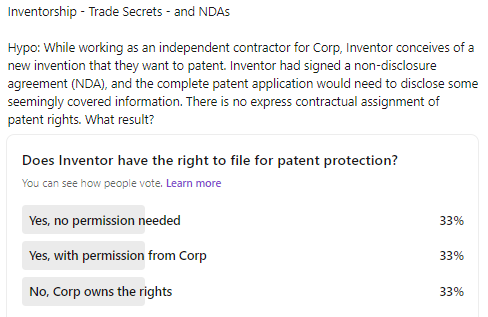Take the 1-question survey on LinkedIn.
The basic underlying question has to do with whether an NDA or other agreement can effectively limit an inventor's ability to pursue patent protection -- even in circumstances where the inventor has not transferred patent rights.
To continue reading, become a Patently-O member. Already a member? Simply log in to access the full post.
